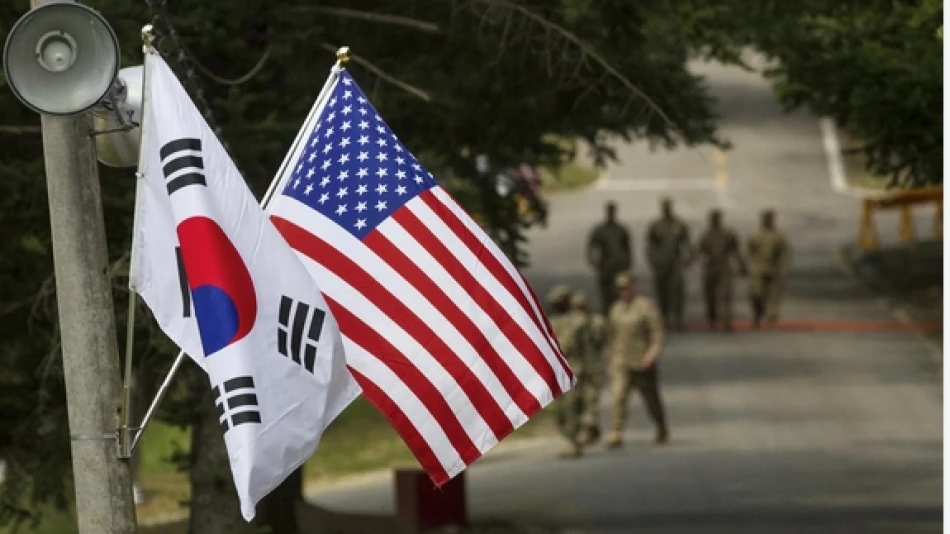
U.S. Secretary of State Meets South Korean Counterpart to Discuss Bilateral Ties
US Pushes South Korea for Greater Defense Spending and Trade Rebalancing Ahead of Trump-Lee Summit
Secretary of State Marco Rubio pressed his South Korean counterpart on burden-sharing and trade fairness during high-level talks in Washington, signaling the Trump administration's intent to extract greater financial commitments from allies while reshaping economic relationships. The Friday meeting sets the stage for Monday's presidential summit between Donald Trump and South Korean President Lee Jae-myung.
Alliance Under Financial Scrutiny
The Rubio-Cho Hyun meeting focused heavily on what the State Department termed "collective burden-sharing" and restoring "fairness and reciprocity" to the US-South Korea trade relationship. This language mirrors Trump's first-term approach of demanding allies pay more for their defense while reducing America's trade deficits.
The discussions centered on a "forward-looking agenda" aimed at strengthening deterrence in the Indo-Pacific region, revitalizing American manufacturing, and rebalancing economic ties between the two nations. These priorities reflect the administration's broader strategy of leveraging security partnerships to achieve economic gains.
Strategic Implications for Indo-Pacific Security
South Korea's role in regional deterrence has become increasingly critical as North Korea accelerates its nuclear program and China expands its military presence. The US maintains approximately 28,500 troops in South Korea, a deployment that costs billions annually and has become a focal point for Trump's burden-sharing demands.
Historical Context of Defense Cost Negotiations
During Trump's previous presidency, negotiations over South Korea's contribution to US military presence proved contentious. The Special Measures Agreement, which determines Seoul's financial contribution, saw dramatic increases from $830 million in 2019 to over $1 billion by 2021. The current administration appears poised to push for even greater contributions.
Trade Rebalancing Takes Center Stage
The emphasis on "fairness and reciprocity" in trade relations suggests the Trump administration may seek to renegotiate aspects of the Korea-US Free Trade Agreement (KORUS). The US trade deficit with South Korea reached $44.4 billion in 2023, making it a likely target for the administration's trade rebalancing efforts.
Manufacturing Revival Strategy
The State Department's mention of "revitalizing American manufacturing" indicates potential pressure on South Korean companies to increase their US-based production. Major Korean manufacturers like Samsung and LG have already established significant American operations, but the administration may seek expanded commitments.
Presidential Summit Expectations
Monday's Trump-Lee summit will likely formalize agreements reached during the ministerial talks. South Korea faces a delicate balancing act: maintaining its crucial security alliance with the US while managing economic pressures and regional relationships with China, its largest trading partner.
The outcome of these discussions could establish a template for how the Trump administration approaches other key Asian allies, including Japan and the Philippines, in similar burden-sharing and trade negotiations. South Korea's response may influence the broader recalibration of America's alliance system in the Indo-Pacific region.
Most Viewed News

 Layla Al Mansoori
Layla Al Mansoori






